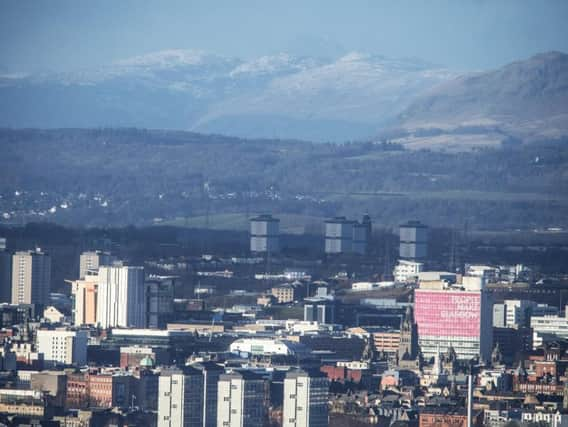Glasgow sets out its ambitions for a more diverse artistic future


Creating greater access to jobs and careers in the arts, dismantling traditional “power and leadership” structures in cultural organisations, and ensuring that all Glaswegians are able to access culture are enshrined in a new vision.
A draft of the Glasgow Culture Plan, which has just been published, envisages the city “confidently” sharing its culture with the world – but also “welcoming everyone to share theirs with the city”.
Advertisement
Hide AdMore than two years after being instigated by councillors, the blueprint aims to ensure Glasgow’s cultural venues and events are “fully accessible to audiences and participants who have been historically marginalised” – and that their own cultural voices are properly celebrated in future.
A new “culture plan” for the city has called for the sector to be much more representative of Glasgow’s diverse population and for venues and events to be accessible to “historically marginalised audiences.”
It states: “Cultural expression is not the right of dominant groups. Wealth and power imbalances stop people with diverse lived experiences from interacting, negotiating and working to understand each other, but more importantly to negotiate a common good that is equitable.
“We should never forget that much of our own culture and infrastructure is a product of imperialism and dominance. Built on tobacco and cotton harvested by enslaved people, profits from people starved and forced off their land, or backbreaking heavy industries, Glasgow has the opportunity to create a new future.”
The blueprint – which envisages Glasgow being “globally recognised as a leading creative and cultural world city” – highlights how it is now home to 100 different cultural organisations, including the national orchestra, theatre, opera, and ballet companies, and is also “blazing an internationally acclaimed trail in contemporary art, design and music”.
However, it also states that although culture has been “central to Glasgow’s evolution for at least 30 years, the city should not be constrained by so much reverence for the past that the new can never become established”.
Advertisement
Hide AdA spokesman for Glasgow Life, which runs cultural venues for the council, said: “This new plan has been developed to build on all that the city has achieved and is a starting point for a renewed conversation led by Glasgow’s creative community.
“We want to consolidate Glasgow’s position as a truly international arts capital – nurturing and showcasing the best in local and international creativity, design and music.
Advertisement
Hide Ad“We would encourage anyone with a role in the sector to respond to the draft plan and have their say during the consultation period to help shape the final version.”
David McDonald, deputy leader of the city council and chair of Glasgow Life, said: “Our new draft plan seeks to set out what the city can do to ensure that culture in Glasgow continues to flourish over the next 25 years.
We know that participation in culture – whether it’s watching a play, creating your own piece of art or singing a song - is a force for good, and an enabler of community empowerment that can increase our quality of life. In Glasgow, we have a vibrant cultural sector that gives the city an edge. It inspires, questions and challenges us to see our city and the world in different ways.
Having just been named as the UK’s top cultural city we need to now create the conditions in which our confident cultural sector can develop and grow, and where our artists are nurtured in their work.”